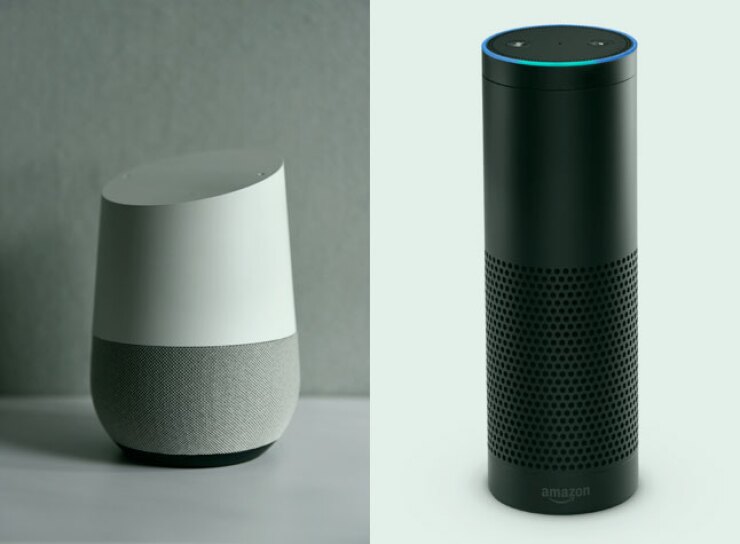With more consumers picking up voice-assistant devices to help tie their smart homes and smartphones together, insurers are looking at potential opportunities from the technology.
By 2018, Gartner predicts 30% of human interaction with technology will be done via conversations with “smart machines." Home assistants — mostly the Amazon Echo, with its Alexa operating system, and Google Home — are now integral cogs of insurers’ distribution strategies, intended to connect with tech-savvy consumers.
Early industry adopters of voice assistant technologies include Liberty Mutual and its subsidiary Safeco Insurance,
“Insurers see the handwriting on the wall, that more customers are getting these home assistants and that there are advantages to letting home occupants get access to products and additional services,” said Donald Light, director of Celent Research’s North America property/casualty practice.

Initial insurance rollouts on Amazon Echo and Google Home have some similarities. They tend to enable customers to check payment due dates, find local agents’ contact information, and learn about available policies for purchase.
“We’ll use this initial experience to build out a road map,” said Roger Tye, vice president of digital and user experience at Allstate, which launched an Amazon Echo skill on Feb. 22. “We will continue to focus on Alexa and other devices like it to be able to leverage technology we already built.”
Allstate began work on its Alexa application, called "skills" by Amazon, in the fourth quarter of 2016. While Amazon did the heavy lifting on voice interaction, the insurer used internal data to determine how customers would use the device and the information it would provide.
With Tye running point, his blended team of mobile and tech personnel developed the new application fitting Amazon specs in a few short months. The process also included a skill review by Amazon prior to Allstate receiving the green light.
Allstate currently tests its new skill by asking Alexa questions to gauge response accuracy, Tye said. The skill-testing environment is provided by Amazon.
“As the technology evolves, Alexa will become a discovery mechanism. Companies with the best answers will strive to the top,” Tye said. “Based on how many people have bought this device, and other devices like it, they enjoy and are going to use them.”
For carriers, the long-term potential is to harness the power of natural-language processing and receive data from customers and manufacturers on risk once they clear a few privacy hurdles, Light says.
Amazon is far and away the leading distributor of voice assistants in the U.S., according to research group Strategy Analytics. The firm estimates 6.3 million Amazon Echo devices were sold in 2016 with significantly more sales expected this year,
The disparity in popularity is evident in insurance as well. Of the six early participants in the home assistant market, only
For Liberty Mutual, the appeal of Alexa was its ability to behave as a control hub for all smart gadgets, according to Brian Piccolo, e-business manager of U.S. consumer markets. The insurer partners with a number of connected-home companies, including Nest, Notion and Vivint.
“When we thought of initial use cases, connection to smart devices definitely swayed our decision as we could envision a future where our skills will provide value not just to our customers, but to our connected home partners as well,” he said.
The Boston-based insurer began development of its Amazon Skill in the spring of 2016, before launching in November. Much like Allstate, it tests and uses customer feedback to enhance capabilities and reduce friction in voice interactions with Amazon Echo.
Early challenges in leveraging the device are highlighted by growing pains in making the skill as useful as possible to the public, Piccolo says.
“Ultimately we will allow our customers to do business with us when and how they want,” he added.
The expansion of current skills to include quoting and loss prevention services, among others, is only one obstacle facing insurers going forward, Light says. Getting a place in the home assistant ecosystem is another. Insurance is only one of the many different capabilities Amazon Echo and Google Home offer.
“People who get Alexa or Google Home have about 10 to 15 things they want to use them for. Home insurance may not even be on the list,” Light says, adding the home assistant market will likely mature over the next three to five years, depending on how quickly devices migrate throughout the population. “If devices get in the home, insurers will have to learn how to play them successfully.”





